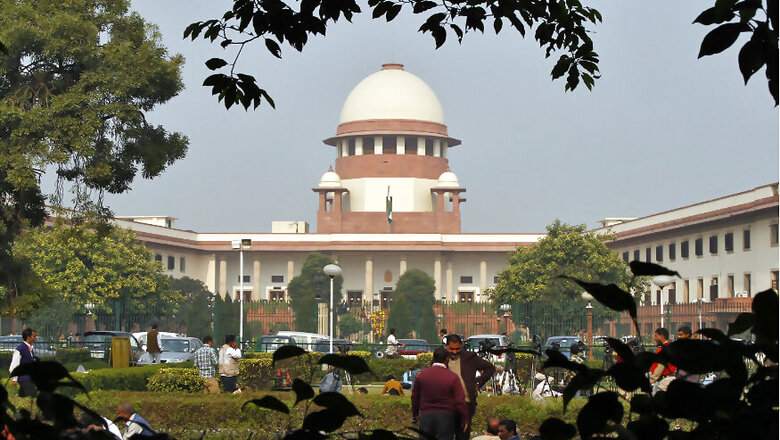
views
New Delhi: At a time when allocation of important cases among judges in the Supreme Court has resulted in four seniormost judges speaking out openly against Chief Justice of India (CJI) Dipak Misra, another development may rattle the ranks.
On Saturday afternoon, the Supreme Court registry notified eight Constitution Bench cases, which will be heard from January 17.
Even though the cases include women-centric issues such as allowing menstruating women to enter Kerala's Sabarimala Temple and making adultery a gender-neutral law, the lone woman judge in the top court doesn't seem to be the part of the adjudication.
Justice R Banumathi is presently the only woman judge in the Supreme Court, out of the working strength of 25 judges, but she is not likely to be a member of the five-judge bench, which will decide various issues pertaining to the rights of women.
Incidentally, Justice Banumathi was also left out of the previous Constitution benches, which were set up on orders of then CJI JS Khehar and had ruled upon validity of triple talaq and right to privacy. Although right to privacy was a nine-judge-bench matter, she was not included on the bench.
And now, she is again not going to be a voice in the eventual rulings in cases such as Sabarimala, adultery and also decriminalisation of homosexuality and the right of women to enter the Fire Temple for Parsis.
Notably, holding an unprecedented press briefing on Friday afternoon, four most senior judges — Justices J Chelameswar, Ranjan Gogoi, Madan B Lokur and Kurian Joseph — had questioned the CJI's mandate and manner of allocating cases across various benches in the top court.
According to a notification by the court registry, the list of eight cases begins with Aadhaar matter and the rest of the Constitution Bench cases have been listed in the same batch.
Since Aadhaar is a case which was last heard by a Constitution Bench on December 15, it can be anybody's guess that all eight matters in this batch will be heard by the same Constitution Bench – something that has many precedents too.
The Constitution Bench in Aadhaar case is headed by Chief Justice of India Dipak Misra and includes Justices AK Sikri, AM Khanwilkar, DY Chandrachud and Ashok Bhushan.
Therefore, the same composition of the judges will now hear the eight cases of vital importance for the nation, and for women, without including the only woman judge in the apex court.
Judgments in the Supreme Court are presumably delivered on constitutional touchstones, without any consideration of gender, caste or class.
Women judges, like all other judges in the court, also follow the same legal and constitutional principles and thus, they don't have to necessarily rule favourably on issues of gender.
Yet it is still ironic that an institution that has always upheld the gender rights and has stood up for equality and equal rights for women should put on display an apparent lack of gender diversity on constitution of benches, in particular for such cases.
This is also intriguing that the institution, which has only three days ago recommended appointment of another woman as a judge in the Supreme Court, has failed to accommodate the lone woman judge on the Constitution Bench that will arbiter women's rights.
The spirit of the law is that "justice should not only be done but seem to be done". And to realise this spirit, gender diversity must be on display.




















Comments
0 comment